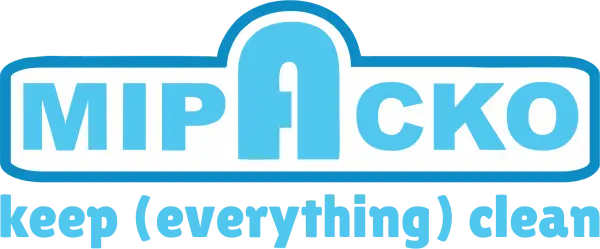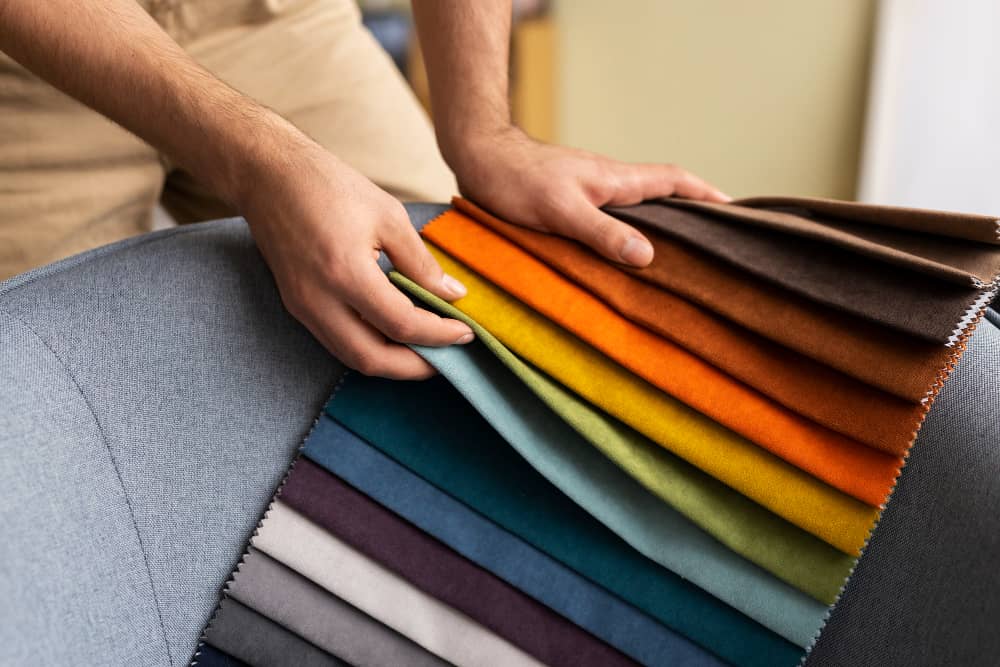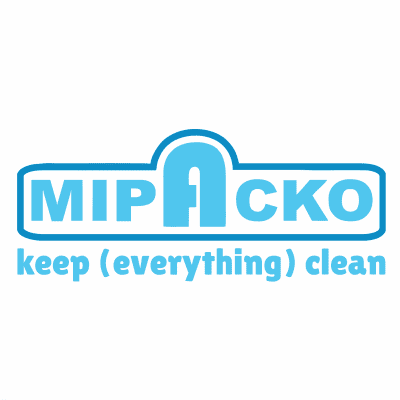Table of contents
- What is polyester fabric?
- Advantages and Benefits of Polyester Fabric
- Uses of Polyester Fabric in Various Industries
- Types of Polyester Fabric
- Advantages and Benefits of Polyester Fabric
- Usage of Polyester Fabric in Various Products
- Care and Cleaning of Polyester Fabric
- Polyester Fabric and Microfiber Fabric
- Conclusion
What is polyester fabric?
Polyester fabric is a type of fabric made from synthetic polyester fibers. Polyester itself is a fiber produced through a chemical process using petroleum-based materials. The polyester fabric is known for its lightweight, strength, and durability. Polyester fibers can be processed into various types of fabrics with different textures and appearances, such as satin, chiffon, twill, and more.
Polyester fabric possesses several characteristics that make it popular in the textile industry. First, it is wrinkle-resistant, so it doesn’t require frequent ironing like cotton fabric. Second, polyester fabric has good colorfastness, meaning the colors tend to remain vibrant even with long-term use. Additionally, it has good resistance to friction and abrasion, making it more resistant to wear and tear.
Another advantage of polyester fabric is its ability to repel water and moisture. It dries quickly, making it a common choice for sportswear and outdoor clothing designed to withstand sweat or humidity. Moreover, polyester fabric has good durability, making it suitable for everyday clothing and products.
In the textile industry, polyester fabric finds applications in various areas, ranging from everyday clothing like shirts, pants, and jackets to sportswear and outdoor attire. Additionally, it is used in the production of furniture, curtains, seat covers, and automotive upholstery. Polyester fabric is also utilized in technical applications such as sleeping bags, tents, industrial filters, and more.
With its strength, durability, and wide range of applications, it’s no wonder that polyester fabric is a popular and frequently used material in the textile industry.
Advantages and Benefits of Polyester Fabric
Polyester fabric boasts several advantages and benefits that make it a popular choice in the textile industry. Here are some of them:
- Wrinkle Resistance: Polyester fabric tends to be more resistant to wrinkles compared to natural fabrics like cotton. This makes it a good choice for clothing that doesn’t require frequent ironing.
- Good Colorfastness: Polyester fabric has excellent colorfastness. Colors on this fabric tend to remain vivid and do not easily fade, even after repeated washing or exposure to sunlight.
- Strength and Durability: Polyester fabric is strong and durable for everyday use. Polyester fibers have good resistance to friction and abrasion, making them less susceptible to wear and tear.
- Quick Drying: Polyester fabric has excellent moisture-wicking properties and dries quickly. It is suitable for sportswear and outdoor clothing that may come into contact with sweat or moisture.
- Long-lasting: Polyester fabric has good durability and can withstand repeated use. It doesn’t easily stretch or lose its shape, making it suitable for daily wear.
- Easy Care: Polyester fabric is relatively easy to maintain. It doesn’t require special care and can be easily washed. Additionally, it has good stain and dirt-repelling abilities.
- Versatile Applications: Polyester fabric is used in a wide range of applications, from everyday clothing to sportswear, furniture, curtains, and technical products. Its strength and resilience make it suitable for various industries.
With these advantages and benefits, polyester fabric remains a popular choice for the production of clothing and textile products.
Uses of Polyester Fabric in Various Industries
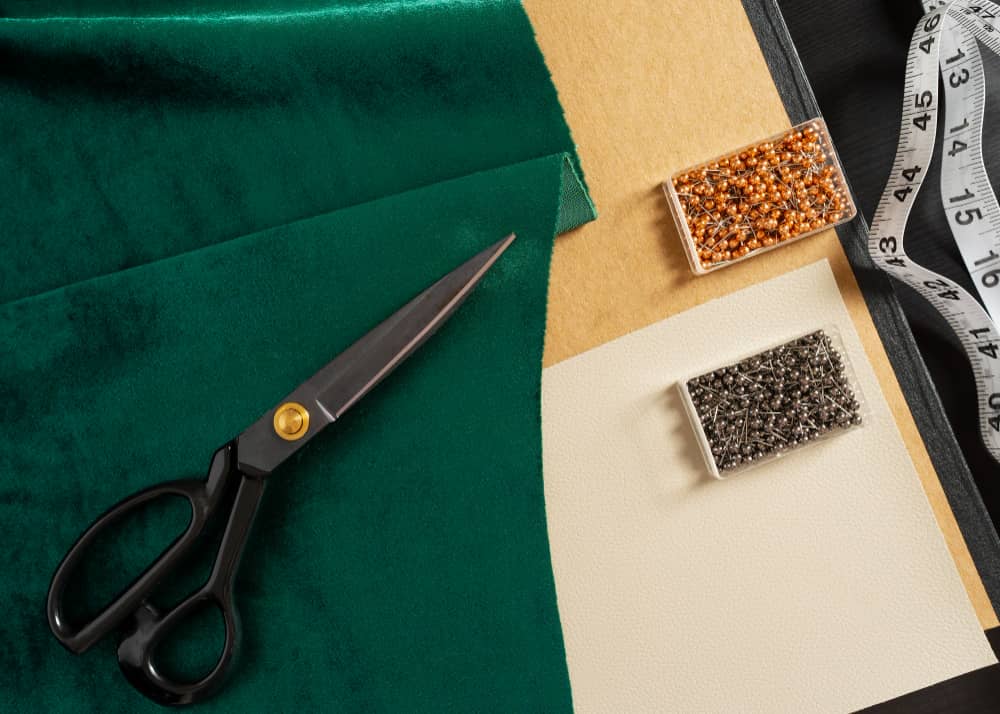
Polyester fabric has a wide range of applications in various industries. Here are some examples of the use of polyester fabric in these industries:
- Clothing Industry: Polyester fabric is widely used in the clothing industry, both for everyday wear and sportswear. The advantages of polyester fabric, such as strength, colorfastness, and quick drying, make it suitable for the production of durable and comfortable clothing.
- Furniture Industry: Polyester fabric is used in the furniture industry for making upholstery fabrics for sofas, chairs, and cushions. This fabric is durable, easy to clean, and comes in a variety of attractive patterns and colors.
- Automotive Industry: Polyester fabric is also used in the automotive industry for making car seat covers, carpets, and interior panels. Polyester fabric is resistant to friction, durable, and easy to clean, making it suitable for use in vehicles.
- Curtain and Window Covering Industry: Polyester fabric is often used in the curtain and window covering industry. This fabric can provide an elegant appearance, has good colorfastness, and is easy to maintain.
- Technical Textile Industry: Polyester fabric is also used in the technical textile industry, such as the production of filter materials, binding tapes, webbing straps, and fire-resistant fabrics. The strength and durability of polyester fabric make it suitable for applications that require specific technical performance.
- Outdoor Industry: Polyester fabric is frequently used in the outdoor industry for making clothing, tents, umbrellas, bags, and other outdoor equipment. This fabric is resistant to extreme weather conditions, quick drying, and durable for outdoor use.
- Healthcare Industry: Polyester fabric is also used in the healthcare industry, such as the production of surgical clothing, surgical drapes, and non-sterile medical products. Polyester fabric has properties that resist fluids and can be easily sterilized.
In every industry, polyester fabric is a popular choice due to its advantages and benefits, including strength, durability, colorfastness, and ease of maintenance. The use of polyester fabric in various industries reflects the flexibility and reliable performance of this type of fabric.
Read more : Microfiber vs Cotton Towel
Types of Polyester Fabric
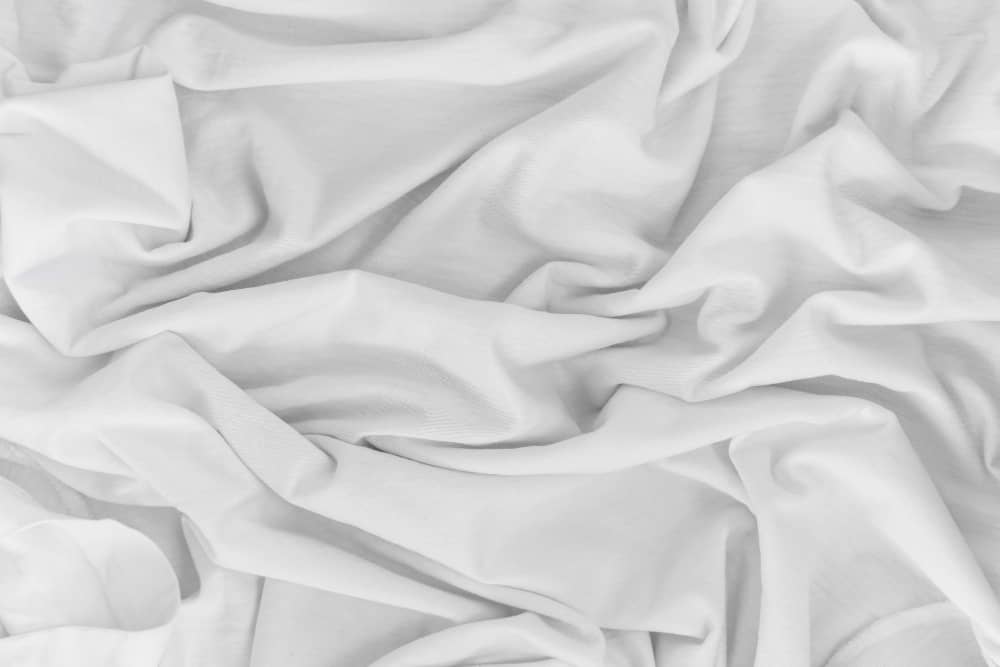
Plain Polyester Fabric
Plain polyester fabric is a type of polyester fabric that does not have specific patterns or prints. It has a smooth and even surface, making it often used for the production of simple and elegant clothing. Plain polyester fabric can be found in various thicknesses and weights, depending on the user’s needs. The advantages of plain polyester fabric include strength, durability, and ease of maintenance.
Polyester Fabric with Patterns or Prints
Polyester fabric with patterns or prints is a type of polyester fabric that has specific designs or patterns applied to its surface. These patterns or prints can be floral motifs, stripes, geometric shapes, or other designs. Polyester fabric with patterns or prints is used for making clothing, furniture, and various other products that require an attractive and distinct appearance. This fabric can provide a creative visual touch and enhance the look of products.
Laminated or Coated Polyester Fabric
Laminated or coated polyester fabric is a type of polyester fabric that has an additional layer on its surface. This layer can be a protective coating, a waterproof layer, or another type of layer depending on the application’s needs. Examples of the use of laminated or coated polyester fabric include the production of rainwear, umbrellas, waterproof bags, or outdoor sports equipment. The additional layer on this fabric provides extra protection against weather, water, or wear and tear.
Each type of polyester fabric has different characteristics and uses. Plain polyester fabric is suitable for simple and elegant clothing, while polyester fabric with patterns or prints offers attractive design options. Laminated or coated polyester fabric provides additional strength and specific environmental protection. The choice of the right type of polyester fabric depends on the user’s needs and purposes. In all its types, polyester fabric retains common advantages such as strength, durability, and ease of maintenance, making it a popular choice in various industries.
Advantages and Benefits of Polyester Fabric
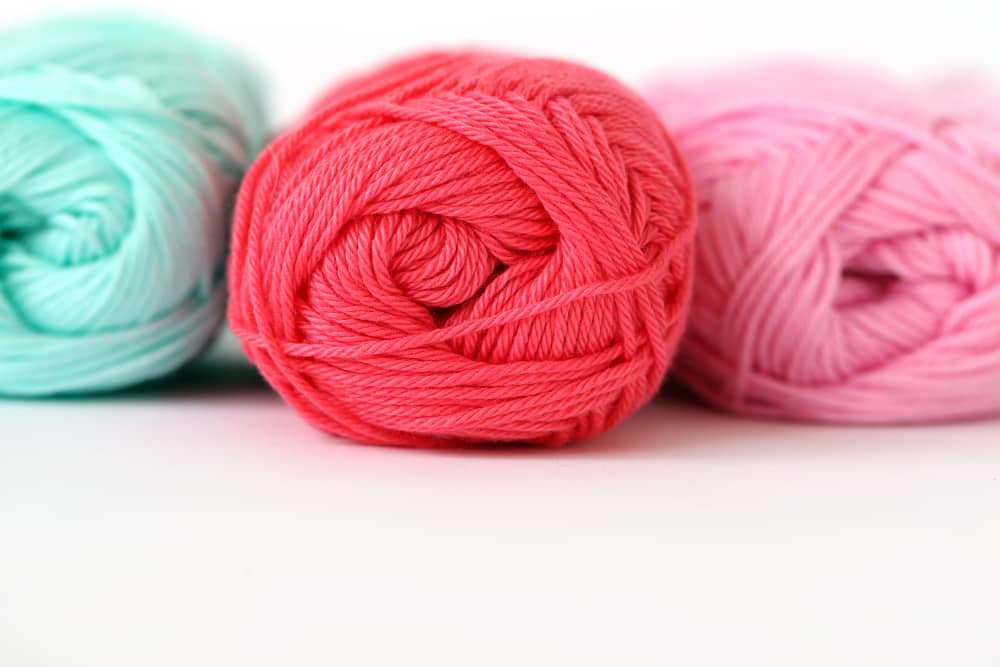
Wrinkle Resistance and Colorfastness
One of the primary advantages of polyester fabric is its resistance to wrinkles and color fading. Polyester fabric tends to have strong and stretch-resistant fibers, making it less prone to wrinkles during use or washing. Additionally, polyester fibers have good resistance to color fading due to UV exposure or sunlight, making it an excellent choice for clothing or products that require long-lasting color vibrancy.
Water and Moisture Resistance
Polyester fabric has hydrophobic properties, meaning its fibers do not readily absorb water. This makes polyester fabric resistant to water stains and liquids that can be easily wiped or blotted away. Furthermore, its moisture resistance allows polyester fabric to dry quickly after washing or exposure to water, making it a suitable choice for sportswear or clothing frequently exposed to sweat.
Excellent Abrasion Resistance and Durability
Polyester fabric exhibits strength and excellent resistance to abrasion or friction that occurs during use. The strong and durable polyester fibers enable the fabric to withstand pressure and rubbing that occur during repeated use. This makes it an ideal choice for clothing or products that undergo frequent use, such as durable bags, long-lasting clothing, or outdoor gear.
Ease of Care and Cleaning
A significant benefit of polyester fabric is its ease of care and cleaning. It is generally resistant to wrinkles, color fading, and stubborn stains. Most polyester fabrics can be easily machine washed and dry quickly. Moreover, polyester fabric does not require complicated drying or ironing processes. This ease of care makes polyester fabric a practical and efficient choice for everyday use.
With advantages such as wrinkle resistance, colorfastness, water and moisture resistance, excellent abrasion resistance, and ease of care and cleaning, polyester fabric remains a popular choice in various industries. These advantages and benefits make polyester fabric ideal for a wide range of applications, from clothing to furniture and sports equipment.
Usage of Polyester Fabric in Various Products
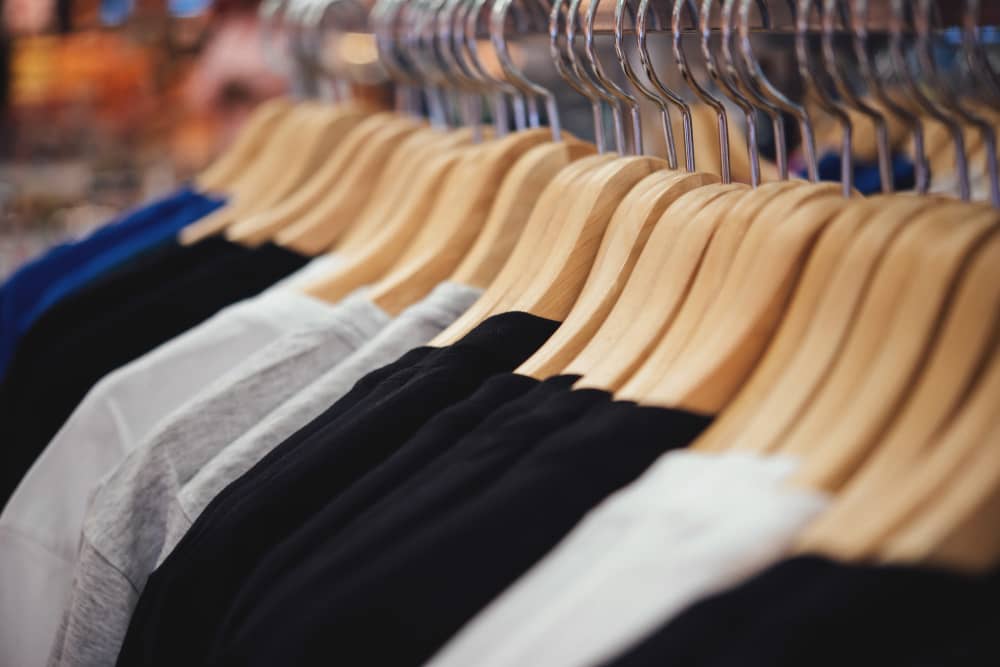
Clothing and Fashion
Polyester fabric is highly popular in the clothing and fashion industry. Many garments such as shirts, blouses, pants, skirts, and dresses are made from polyester fabric. Its advantages, such as wrinkle resistance, durability, and colorfastness, make it an ideal choice for comfortable and long-lasting everyday clothing. Additionally, polyester fabric is used in the production of knitwear, swimwear, and sportswear due to its moisture resistance and quick-drying capabilities.
Furniture and Home Decor
Polyester fabric is also widely used in the furniture and home decor industry. Pillows, curtains, sofa covers, bedspreads, and tablecloths are some examples of household products made from polyester fabric. The advantages of polyester fabric, such as abrasion resistance and water resistance, make it suitable for use in products that are frequently subjected to friction or liquid exposure.
Sports and Outdoor Equipment
In the sports and outdoor equipment industry, polyester fabric is a highly popular material. Outer jackets, hiking pants, tents, hiking bags, and other sports equipment often use polyester fabric due to its moisture resistance, quick drying, and abrasion resistance. Polyester fabric is also commonly used in the production of flags, banners, and advertising screens due to its durability and resistance to extreme weather conditions.
Technical and Industrial Applications
Polyester fabric has a wide range of applications in technical and industrial fields. For example, it is often used as a filter material in the chemical or water treatment industry. Polyester fabric is also used in the production of ropes, raffia strings, and optical fiber cables due to the strength and durability of its fibers. Additionally, it is used in the production of mesh bags, fire-resistant fabrics, and temperature insulation fabrics due to its ability to withstand pressure and extreme temperatures.
With its broad usage in various products such as clothing, household furnishings, sports equipment, and technical applications, polyester fabric has proven itself to be a versatile and high-quality material. Its advantages in terms of durability, comfort, and ease of maintenance make it a popular choice in various industries.
Care and Cleaning of Polyester Fabric
Care Instructions for Polyester Fabric
To maintain the quality of polyester fabric, it is important to follow the recommended care instructions. Checking the care label on the product is a crucial first step. This label provides information on specific instructions such as recommended water temperature, safe detergent types, and drying instructions. It is essential to follow these instructions to keep polyester fabric in its best condition.
How to Properly Wash Polyester Fabric
Polyester fabric can generally be machine-washed using a gentle or medium cycle. Use a mild detergent and avoid using chlorine bleach, as it can damage polyester fibers. Check the care instructions on the label to determine the safe water temperature to use. Avoid washing polyester fabric with garments that have sharp buttons or zippers, as they can cause scratches or damage to the fabric.
Tips for Maintaining the Quality of Polyester Fabric in the Long Term
- Avoid using high temperatures when ironing polyester fabric. Use a low to medium heat setting and avoid ironing directly on the fabric’s surface. If necessary, use a protective cloth on top of the polyester fabric.
- Keep polyester fabric away from prolonged direct sunlight exposure, as it can cause color fading. If possible, use curtains or covers to protect polyester fabric from UV rays.
- Avoid contact with strong chemicals such as bleach or harsh cleaning agents that can damage polyester fibers.
- If there are stains on polyester fabric, clean them promptly using an appropriate method for the type of stain. Avoid scrubbing too vigorously to prevent damage to the fabric fibers.
With proper care, polyester fabric can continue to look good and last a long time. Following recommended care instructions, washing correctly, and maintaining the fabric’s quality in the long term will help preserve the appearance and advantages of polyester fabric.
Polyester Fabric and Microfiber Fabric

Relationship Between Polyester and Microfiber Fabric
Polyester and microfiber have a close relationship, as microfiber fabrics are often made from a blend of polyester and other fibers. Microfiber is a type of fabric that uses ultra-fine fibers, typically consisting of a combination of polyester and polyamide fibers. Polyester fibers provide strength and durability to microfiber fabric, while polyamide fibers contribute softness, absorbency, and effective cleaning capabilities.
In this context, polyester plays a role in providing structure and strength to microfiber fabric, while polyamide fibers impart unique properties such as softness, high absorbency, and effective cleaning ability. This combination makes microfiber fabric popular in many applications, including towels, cleaning cloths, pillowcases, and other products that require high absorbency and softness.
In many cases, microfiber fabric is made from very fine polyester fibers, which provide a soft surface and efficient cleaning and moisture absorption capabilities. However, it’s important to note that not all polyester fabrics can be categorized as microfiber, as microfiber has specific fiber characteristics and specifications to provide advantages in cleaning and softness.
Read more : Microfiber Towels: The Ultimate Solution for Your Towel Needs
Percentage of Polyester Content in Microfiber Fabric
The percentage of polyester content in microfiber fabric can vary depending on the type and brand of microfiber fabric used. However, generally speaking, microfiber fabric typically consists of a blend of polyester and polyamide fibers.
The ratio of polyester fibers to polyamide fibers in microfiber fabric can vary depending on the needs and specifications of the product. Typically, polyester fibers can make up the majority of the blend in microfiber fabric, with a content of around 80-90% or more. Meanwhile, polyamide fibers usually have a content of around 10-20% or less in microfiber fabric.
However, it’s important to remember that the percentage of fiber content in microfiber fabric can vary between manufacturers and brands, so it’s advisable to read the label or product information provided to determine the exact fiber content in a specific microfiber fabric.
Conclusion
Advantages of Polyester Fabric as a Practical and Functional Choice
Polyester fabric has several advantages that make it a practical and functional choice in various applications. These advantages include resistance to wrinkles and color fading, the ability to withstand water and moisture, as well as good durability against abrasion and repeated use. Additionally, polyester fabric is easy to care for and clean, making it a convenient choice for a wide range of projects.
The Importance of Proper Care to Maintain Polyester Fabric Quality
To maintain the quality of polyester fabric in the long term, it is essential to provide proper care. Following recommended care instructions, such as washing correctly and using the right detergent, can help prevent damage and preserve the fabric’s quality. Additionally, keeping polyester fabric away from direct sunlight exposure or extreme temperatures can also help extend its lifespan. By providing proper care, you can ensure that polyester fabric continues to look and feel good in the long run.
With the practical and functional advantages of polyester fabric, as well as an understanding of the importance of proper care, you can maximize the use of this fabric and extend its lifespan. When choosing polyester fabric, consider your needs, look for reputable brands, and pay attention to technical specifications to ensure you get a quality product. With proper care, polyester fabric can provide long-term benefits and meet your needs effectively.
